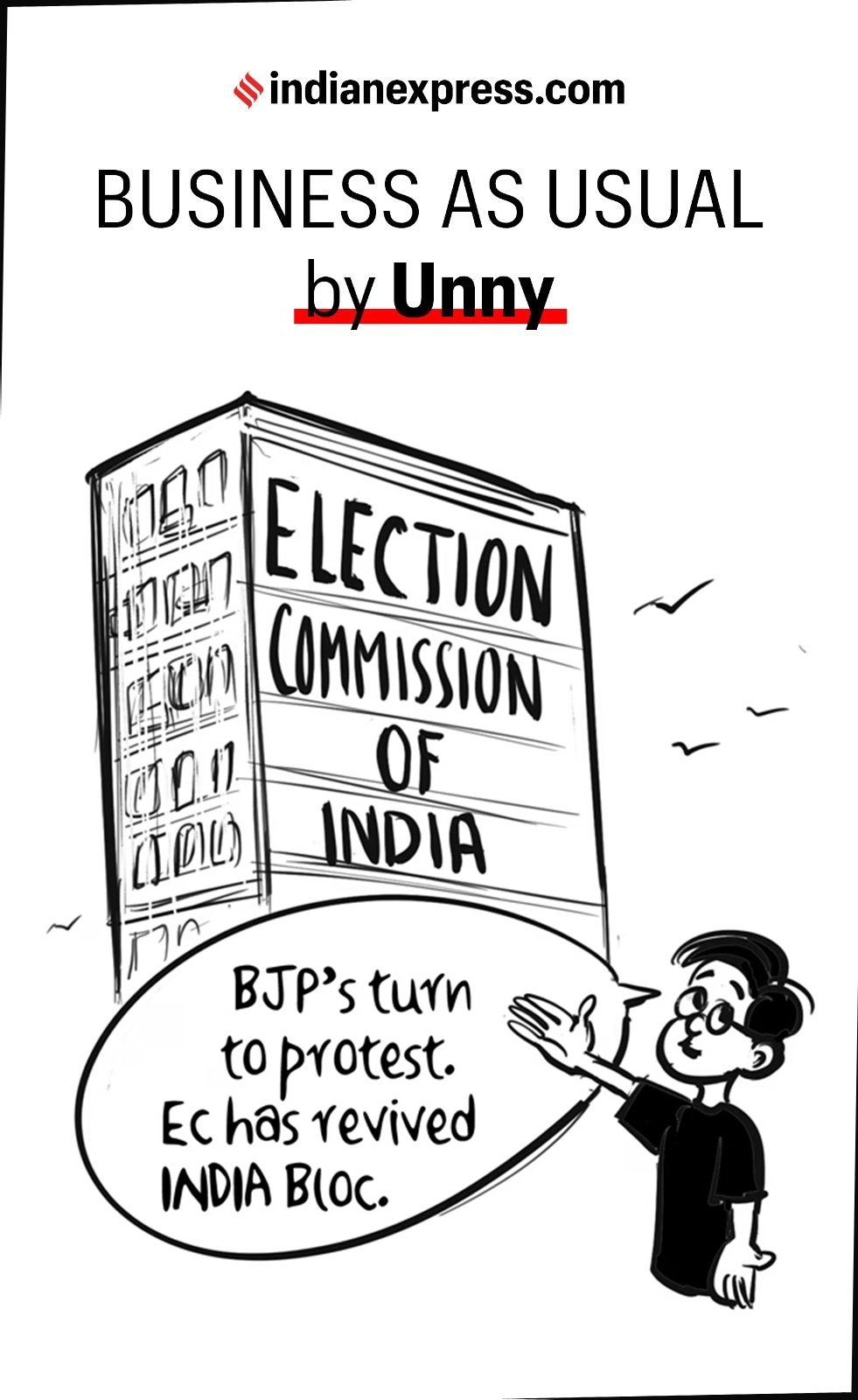The United States and China have agreed to extend their 90-day pause on steep triple-digit tariffs against each other’s products. The extension, originally agreed upon in May, will now last until November 10. This comes just days after US President Donald Trump raised tariffs on Indian goods to 50 per cent in the American market, intending to ‘punish’ New Delhi for purchasing Russian oil. Notably, China, currently the largest buyer of Russian oil, has avoided similar treatment and continues trade talks with the US. New Delhi, which has yet to seal a trade deal with the US, is closely monitoring these talks as it aims to maintain a competitive edge over Chinese exporters.
We have more on Trump’s tariffs and their on-ground impact. But first, a look at the Supreme Court’s order on stray dogs in the national capital.
🚨 Big Story
The Supreme Court has asked the Delhi government, civic bodies and authorities in the national capital region to round up all stray dogs and relocate them to shelters. Issuing a strict order, in the face of rising cases of dog bites, the Court said, “You shouldn’t find a single stray dog moving around anywhere in any locality”. It also stated that action would be taken against any individual or organisation that comes in the way of the drive.
Currently, the Delhi government picks up stray dogs, takes them to hospitals for sterilisation and then releases them back on the same streets, as per the Animal Birth Control Rules, 2023. However, with the Supreme Court’s order, the government will have to change its tactics.
Uphill task: Officials estimate that the current stray dog population is around 8 lakh, raising questions about the carrying capacity of existing infrastructure. The government doesn’t have shelters of its own, which means the burden to house the entire stray population will fall on the few NGO-run facilities. While the Court has specified an eight-week timeline to build new shelters, officials say it would likely take longer.
Divided: The move has been met with a mixed response, with some welcoming the court’s order. However, animal protection organisations have called it “impractical and inhumane“. Some view strays as “community dogs”, advocating for the co-existence of humans and dogs, after vaccination and sterilisation, within localities. Some Resident Welfare Associations (RWAs) have raised doubts over the effective implementation of the orders, flagging infrastructural gaps.
Story continues below this ad
Also read: How abandoned dogs and irresponsible petting on the streets contribute to the stray dog menace
⚡ Only in Express
Tariff heat: An estimated 55 per cent of India’s merchandise exports to the US are facing the 25 per cent tariffs that took effect on August 7, the Finance Ministry informed the Lok Sabha yesterday. Though it did not specify the impact of the pending additional 25 per cent ‘penalty’, several sectors have raised fears about reduced exports and potential job losses.
In an ongoing series tracking the on-ground impact of Trump’s tariffs, today’s spotlight is on India’s diamond trade. Exports of non-industrial diamonds (suitable for jewellery or investment) make up 68 per cent of the total volume of the US’ diamond imports. However, with extra tariffs looming, companies in the diamond hub, Surat, were compelled to put orders on hold, which may mean a dampened festive season ahead. Notably, the Gem and Jewellery Export Promotion Council has flagged that 50 per cent tariffs would make Indian exports uncompetitive, threatening thousands of jobs.
In part 1 (on Tamil Nadu’s textile belt) and part 2 (on Andhra Pradesh’s shrimp farmers), we discuss how the tariff hike is affecting other sectors.
Story continues below this ad
Trump’s ‘one-trick pony act’ of imposing tariffs against all trading partners began in April. How have these tariffs fared months down the line? Well, India is among the worst hit, while war aggressors like Russia and Israel have side-stepped steep sanctions. Meanwhile, India-US relations and Trump’s own political currency seem to have taken a hit. Read my colleague Anil Sasi’s insightful report.
📌 Must Read
Tweaks: As Opposition parties protested outside Parliament against the electoral roll revision in Bihar and alleged electoral malpractice, the Lok Sabha and Rajya Sabha cleared six Bills. Among those were the Income-Tax (No.2) Bill,2025, and the Taxation Laws (Amendment) Bill, 2025, passed in three minutes, without debate. From refunds on returns filed after the deadline to certain exemptions, here are the key changes brought in by the Bills.
Axed: Karnataka cooperation minister K N Rajanna is among the most vocal Congress leaders in the state. On Monday, he was forced to resign for defying the party line on “vote chori” in the Mahadevapura Assembly seat. Rajanna’s statement that the irregularities happened under the Congress’s watch left the party embarrassed. Akram M traces Rajanna’s political journey.
‘Greed’: The devastating flash floods in Uttarakhand’s Uttarkashi have again put the spotlight on the tragic consequences of heavy monsoon in the Himalayan region. Author Stephen Alter, a resident of Mussoorie, writes that “global warming” alone cannot be blamed, when “indiscriminate, unplanned and often illegal” homes, guesthouses, ashrams, hotels, Maggi points and military camps have cropped up in the region. Read.
Story continues below this ad
🎧 For more on the Uttarkashi floods and the ongoing rescue operations, tune in to today’s ‘3 Things’ podcast episode.
⏳ And Finally…
This summer was supposed to be about the return of big-budget superhero films. Think Superman, Thunderbolts or The Fantastic Four. But the response has been mixed, at best. Is the superhero genre in need of a breather? Jatin Varma, founder of Comic Con India, writes that the fandom will continue to thrive without superheroes — if anything, the recent San Diego Comic-Con, the biggest pop culture convention, proved just that. Read more in our latest ‘Fresh Take’.
That’s all for today, folks! Until tomorrow,
Sonal Gupta
 Business As Usual by EP Unny
Business As Usual by EP Unny 


 Business As Usual by EP Unny
Business As Usual by EP Unny





























